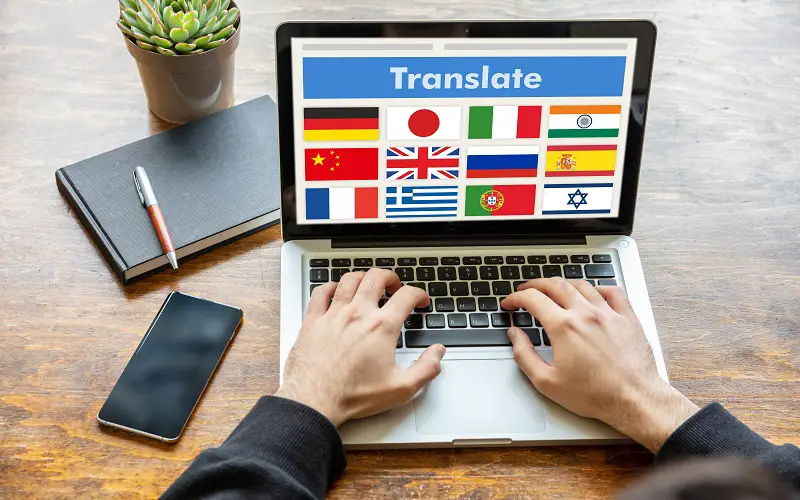
1. Precision in Linguistic Accuracy
At the core of professional translation services is an unparalleled commitment to linguistic accuracy. While machine translation tools have advanced, they often fall short in capturing the nuances, idioms, and cultural subtleties inherent in languages. Professional translators bring not only linguistic expertise but a deep understanding of the cultural context, ensuring that the translated content is not just accurate but also culturally resonant.
Consider a software company launching a new product globally. Professional translators not only translate the user interface and documentation accurately but also adapt the language to reflect the cultural preferences and linguistic intricacies of each target market. This precision enhances user understanding, reduces the risk of misinterpretation, and contributes to a seamless user experience.
2. Cultural Sensitivity and Adaptability
Professional translators are adept at navigating the delicate terrain of cultural sensitivity. Localization is not just about converting words from one language to another; it involves adapting content to align with the cultural norms, beliefs, and values of the target audience. Professional translators bring cultural insight to the table, ensuring that the localized content is not only accurate but also respectful and acceptable in the local context.
For instance, a marketing campaign that employs humor may resonate well in one culture but might be perceived differently in another. Professional translators understand the nuances of humor, tone, and cultural references, enabling them to adapt content in a way that maintains cultural sensitivity and avoids unintended misinterpretations.
3. Consistency Across Multilingual Content
Maintaining consistency in messaging across different languages is a formidable challenge that professional translation services effectively address. Inconsistent messaging can lead to confusion and dilute the brand identity. Professional translators work meticulously to ensure that terminology, style, and tone remain consistent, irrespective of the language in which the content is presented.
Consider a global brand with an extensive product catalog. Professional translation services not only translate product descriptions accurately but also ensure that the tone and style align with the established brand voice. This consistency reinforces brand identity, fosters customer trust, and contributes to a cohesive global brand image.
4. Increased Reach and Market Penetration

One of the primary goals of localization is to expand the reach of businesses into new markets. Professional translation services play a pivotal role in achieving this objective by breaking down language barriers and making content accessible to a broader audience. This expanded reach opens doors to new customers, untapped markets, and increased business opportunities.
Imagine an e-commerce platform offering its services in multiple languages. Professional translation services enable the platform to not only translate product listings but also adapt the entire user experience, including customer support and communication, to cater to a diverse global audience. This comprehensive approach enhances the platform’s appeal and facilitates market penetration.
5. Enhanced User Experience and Customer Satisfaction
User experience is a critical factor in the success of any product or service. Professional translation services contribute significantly to a positive user experience by ensuring that the content is not only linguistically accurate but also aligned with the cultural expectations of users. When users interact with content that feels native to their language and culture, it enhances satisfaction and fosters a sense of connection with the brand.
Consider a mobile app seeking to engage users worldwide. Professional translation services go beyond translating the app interface; they adapt icons, symbols, and even navigation patterns to align with the cultural preferences of different regions. This meticulous attention to detail contributes to a seamless and enjoyable user experience, increasing the likelihood of user retention and positive reviews.
6. Time and Cost Efficiency
While the initial investment in professional translation services may seem substantial, it often proves to be more cost-effective and time-efficient in the long run. Professional translators work efficiently, leveraging their expertise to deliver high-quality translations within stipulated timelines. This efficiency becomes particularly crucial when businesses are working on tight deadlines or launching time-sensitive campaigns.
In contrast, relying solely on internal resources or machine translation may result in inaccuracies, delays, and the need for subsequent revisions. Professional translation services streamline the process, ensuring that businesses can meet their localization goals in a timely and cost-effective manner without compromising on quality.
7. Compliance with Local Regulations and Standards
Different regions come with unique regulatory requirements and standards that businesses must adhere to. Professional translation services include experts who are well-versed in the legal and regulatory frameworks of various markets. This knowledge ensures that translated content complies with local laws, industry standards, and any specific requirements mandated by regulatory bodies.
Consider a pharmaceutical company seeking to expand its operations globally. Professional translation services not only translate product information but also ensure that it aligns with the regulatory requirements of each market. This attention to detail mitigates the risk of legal issues and facilitates a smoother entry into new markets.
8. Accessibility to Specialized Industry Knowledge
Certain industries demand specialized knowledge and terminology that may be unfamiliar to general translators or machine translation tools. Professional translation services often include experts with industry-specific knowledge, ensuring that the translation is not only accurate in terms of language and culture but also reflects the nuances of the particular industry.
For example, a technology company introducing a new software solution may require translations that incorporate industry-specific terms and technical jargon. Professional translation services with expertise in the technology sector can provide translations that accurately convey the intended meaning, maintaining precision and clarity within the industry context.
Conclusion: The Translator’s Touch in Global Success

In the intricate tapestry of globalization, professional translation services emerge as the artisans who intricately weave the threads of language, culture, and communication. The benefits they bring to the table extend beyond mere linguistic accuracy; they encompass cultural sensitivity, consistency, market reach, and customer satisfaction. As businesses navigate the global landscape, the translator’s touch becomes indispensable for those aiming not just to communicate but to resonate with diverse audiences worldwide.
Professional translation services are the compass that guides businesses through the labyrinth of languages and cultures, ensuring that every message, product, and service is received with the intended impact. In the symphony of global business, where every word carries resonance, the role of professional translation services is not just to translate but to transcend, bridging cultures and unlocking markets for those with the foresight to recognize their invaluable contribution.
